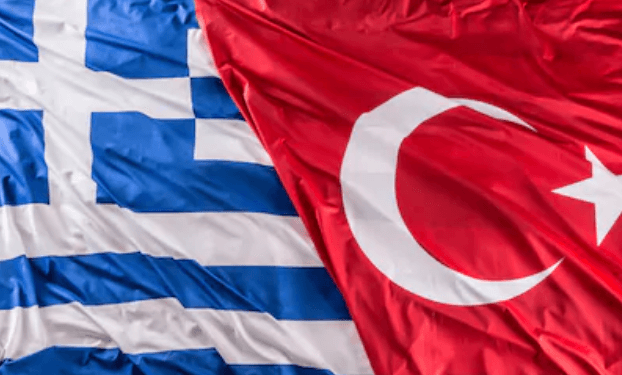By Dimitris Konstantakopoulos
The decision of Turkey to withdraw its vessel surveying Eastern Mediterranean, where maritime zones are not demarcated and are claimed by both Greece and Turkey, has led to at least a temporary recession of the dangerous dispute between Greece and Turkey in Eastern Mediterranean.
However nothing has been resolved. The dangers of a Greek-Turkish war, with huge international consequences, or, alternatively, of a long and dangerous crisis, are always present, especially given the “civil war” inside the western establishment between more conservative forces and the party of a permanent “war of civilizations”. This “civil war” found already its reflection to the fact that Mrs. Merkel negotiated a first Greek – Turkish moratorium, only to see Mr. Pompeo, a leading neocon figure, intervene and torpedo it in 48 hours.
Greece is watching Turkey, Turkey is watching Greece and the EU is watching both of them. But political leaders in both Athens and Ankara do not seem to realize the more general games which determine the Greek – Turkish conflict, as was the case always in history. A classic example is the 1974 crisis, when Kissinger pushed the US-installed military junta in Athens to stage a coup in Cyprus and then Turkey to invade the island.
Mr. Pompeo spends now much of his precious time (as he is busy with China, Iran, Belarus and Latin America among others) traveling to Cyprus and Greece. Observers do not understand very much why he is making those trips and what is the real message he did convey behind closed doors to President Anastasiades.
Mr. Pompeo is trying hard to persuade Germans he is working also for peace and disengagement, but we will have to judge his real intentions by the practical results of his trips, not by what he says.
We explained in our previous articles that a war between Greece and Turkey will have no winners, it will have only losers. The two countries have a huge number of destructive weapons and a kind of “strategic parity” is established between them. Even if one somehow manages to destroy a large part of the other’s armed forces (something completely unlikely) it will still leave it with the potential to deliver a devastating retaliatory blow. The two countries (and Cyprus) will go back two hundred years, while key interests of Europe, China and Russia will be affected. A strong dose of “chaos” will be added to a planet which is already in a sui generis “pre-war state” (‘Far East, Middle East, health and deep economic crisis, US quasi civil war).
The amazing and most tragic element of the present crisis is that in reality it begun on non-existent or almost non-existent issues. Turkey wants to get as much as possible of the Eastern Mediterranean hydrocarbons, but it is not certain they exist and what is the cost of their extraction, especially in an environment of collapse of the oil economies and of moving further away from fossil fuels.
The governments of Greece, Cyprus and Turkey seem to be in a state of denial as far as the reality of a systemic decline in global oil and gas demand is concerned, a so serious decline that it is already threatening the economic viability of most states in the Middle East. When one reads various Turkish admirals saying there are gas reserves for five hundred years in Eastern Mediterranean, he easily understands that fools and provocateurs are not missing from any of the two countries and this is a reason we can end up in war.
Extremely insecure, Turkey thought also that we are in 1920 and not in 2020 and that Greece, Cyprus and Israel would “exclude” it from the Mediterranean, building the EastMed gas pipeline from Israel to Greece and allying with each other. But the strongly supported by US and Israel EastMed pipeline (Israel – Cuprus – Greece – Italy) will hardly ever be built, as it is too expensive, no deposits have been found to justify its cost, Italy, the recipient of the gas has not agreed to the project, Europe is moving away from fossil fuels and their price has collapsed. The only result of this pipeline project was up to now to provoke a serious crisis between Greece and Turkey and we cannot exclude that this the aim of the operation from the very beginning.
The supposed alliance between Greece, Cyprus and Israel seems devoid of any content capable of threatening Turkey. It is rather a way for Greek and Cypriot elites to justify to their public opinion the huge concessions they made to Israel, with nothing in return.
Read more at http://www.defenddemocracy.press/war-and-peace-in-eastern-mediterranean/






